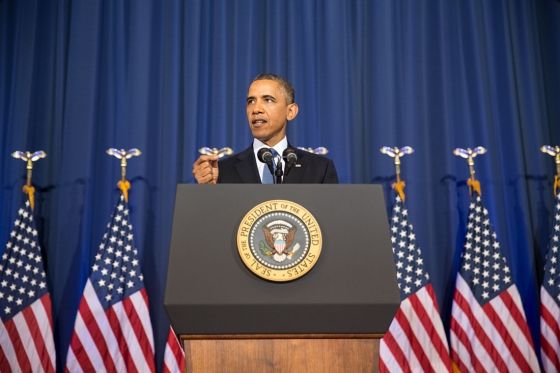Editorial: Ebola outbreak calls for help to limit spread

The Ebola virus outbreak in West Africa is claiming the lives of more and more people as it spreads. President Obama is sending 3,000 troops to help build clinics to house the infected people and to contain the spread.
September 16, 2014
The worst Ebola outbreak since the disease was identified in 1976 is spreading like wildfire through West Africa. This outbreak is responsible for the deaths of 2,500 people and has potential to move to other continents if it continues to spread. That is why President Barack Obama has decided to send 3,000 troops, including medical personnel and engineers, to West Africa.
The mission of the United States is to help eradicate Ebola from West Africa and keep it from spreading to other African regions and continents. The objective of the troop installment is to build 17 new hospitals with around 100 beds each.
The troops will be leading training for health workers as well as helping build health clinics in order to control the deadly virus. The most severely affected African nation has been Liberia, where many of the troops are going to be sent.
The Ebola virus is a disease that was originally transferred from animals to humans. The original host animal was the fruit bat. Now that humans have contracted the virus, it can easily spread from human to human. The virus shows itself at first with nausea and headache and then progresses to bleeding from the eyes and other orifices of the body as death approaches. Nearly 90 percent of people who contract the Ebola virus will die from it.
Many people are too poor to afford proper health care in the region of Africa that has been affected by the Ebola virus. Not only is there no way for patients to afford health care, there is not enough funding for the areas to afford medical facilities. Therefore, the lack of medical care is keeping people in the African villages sick for longer periods of time and causing more people to die from sickness.
If the virus continues to spread through these villages as the present rate without the already infected people being cured, it is very possible that some of the smaller villages in West Africa could be wiped out. This epidemic can even be spread from one village to the next through people who have unknowingly contracted the virus and try to flee from the infected areas. Without proper care, which is unavailable to the majority of the region, the lives claimed by the virus will continue to rise.
It is very important that as many people as possible in West Africa are cured so that the virus can be contained. Sending Americans over to places where the virus is so prevalent is certainly a dangerous proposition, and every conceivable measure of caution should be taken, but this is a mission that needs to be undertaken.
That being said, our troops need to be safe. It is wonderful that the president is concerned with the deadly outbreak in Africa — humanitarian efforts such as this one are vital to global relationships. However, if the health of the troops is not prioritized and maintained, there is a risk that the disease could potentially come back to the United States. There needs to be a direct plan in order to outline what will happen if an American falls ill with Ebola and what will happen if that person returns to the United States. Such a plan is necessary because this time the numbers of returning infected individuals could be much higher than just a few medical workers.
Obama’s response to this concern is that the troops will be helping train healthcare providers and build the clinics but will not be working directly with anyone who has the disease. So hopefully the plan to return infected Americans will only be used as a failsafe.
As of right now, the major crisis in the infected areas is that there are too many people who are sick and not enough places to put them. People who have contracted the Ebola virus are being sent away from hospitals and expected to go back out into the public with the risk of infecting other people simply because there are just not enough beds to put everyone in.
Borders and nationalities aside, the people of these villages need help. The United States is fulfilling the ethical duty of all human beings to assist one another when they are in need. Perhaps someday, when the United States needs similar assistance, another country will be there for it because of actions like this one.
If the cost of protecting those who cannot protect themselves takes American troops into yet another dangerous situation, then so be it.






